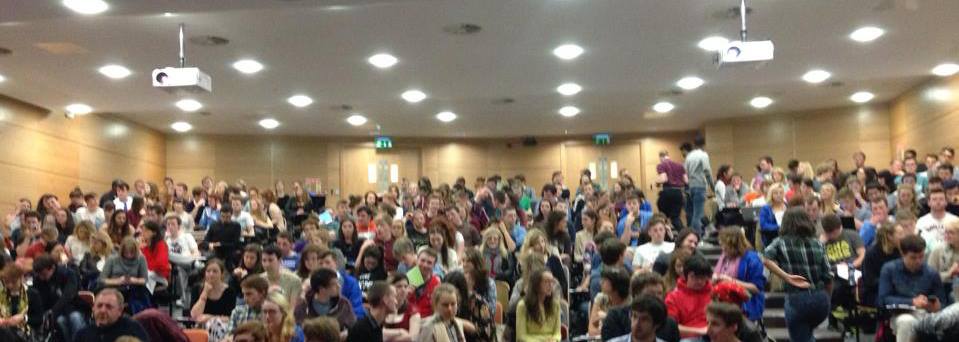Hannah Ryan | News Editor
A motion was passed at Students’ Union Council on 12 November to oppose the increase in Non-EU student fees which is scheduled for implementation next year. The motion, proposed by Nicholas Spare, class representative for second-year Law and German, mandates the SU President, Tom Lenihan, “to notify the relevant College authorities that the Students’ Union is opposed to their decision to increase fees for Non-EU students.”
Union opposition would cost “next to nothing but would reassure international students that our voices are being heard by the union.”
Spare mentioned his personal experience as a non-European student at Council and asserted that the increase in fees would definitely impact on his decision and ability to attend Trinity, despite College claims that such fee hikes will not affect the attractiveness of the university internationally. He criticised comments made by the TCDSU President to this newspaper in October, where Lenihan stated that “it is a step taken not unlike what Trinity’s counterparts have done. Given the initial success of the Global Relation Strategy the risk level that this would deter potential international students is low.”
The motion claimed that Lenihan’s comments “present a stark contrast to the policy the SU has taken in opposing student fee increases for Irish students and seemingly disregards the very real financial and social impact this decision will have on the lives of international students and their families.” Spare stated that as a result of this, international students in the college now feel “ignored” by the union. He went on to say that the proposal that the union contest the increases would cost “next to nothing but would reassure international students that our voices are being heard by the union.”
“The long term goal is to convince the college leadership to see us less as just a stream of revenue and more as valuable members of the Trinity community.”
The motion also called for the union to recognise that “Non-EU students are an important part of the Trinity community and valued members of the Students’ Union. As such they deserve to have their interests protected and their voices represented by the Sabbatical Officers just like their Irish counterparts.”
The vote on the motion was passed, and it was also mandated that Education Officer Jack Leahy will convene a meeting for Non-EU students “to discuss the impact a fee increase could have on their lives and report the findings to the College administration.”
On the passing of the motion, Spare told The University Times: “I am very grateful for the support the motion received at Council. It is reassuring to know that the Students’ Union is willing to take a stand for all its members, including Non-EU students. I would like to thank the Sabbatical Officers for their willingness to listen to our concerns and the words of support they offered while the motion was being debated. As a Non-EU student I feel confident that we are well represented by our elected officers.”
Spare continued, “Hopefully, now that the Students’ Union has adopted an official position on the issue the college administration will be forced to give more consideration to the concerns of Non-EU students in the future and the long term goal is to convince the college leadership to see us less as just a stream of revenue and more as valuable members of the Trinity community.”
“We don’t want a university with international students on the fringes. By working with the Treasurer’s Office we aim to help students hit by increases to their fees.”
The decision to increase Non-EU fees, revealed in the previous issue of The University Times, was made after a meeting of the College Finance Committee in September. It was noted that fee levels for students from outside the European Union have remained stable since 2009-10, and that increased tuition fees would greatly benefit Trinity’s finances. It was also highlighted that a student survey had revealed monetary factors to be of low priority for incoming non-EU students. The decision to augment the fees was then approved by the College Board in October.
Welfare Officer Stephen Garry also spoke on this topic at Council, making the point that the decision on the part of the Board to raise the fees has “already been made”. However he also said that the SU can notify the Board about opposing the decision, and that they can make a proposal for further financial assistance for those students struggling to pay for college.
Asked to comment on the suggestion that the SU does more to protect its Irish students than those who are international, Lenihan stated: “The SU represents every member of the union and we put a lot of resources into helping students outside the EU through the Meet & Greet Service, accompanied trips to the GNIB office and our International Officer, Michaela Hogan, has done a stellar job this year. We don’t want a university with international students on the fringes. By working with the Treasurer’s Office we aim to help students hit by increases to their fees.”
While exact figures of fee increases have yet to be released, it is expected that costs will rise by at least €4000 across the board.







